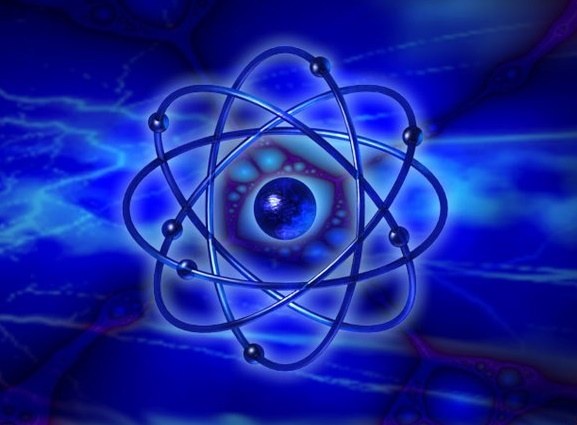The first thinker to use the term "matter" was the ancient Greek philosopher Plato. In Plato's philosophy played a large role the idea of the "world of ideas" as opposed to "world of things" and preceding it. From the point of view of Plato, matter is the substratum of things. So together with the concept of matter is born from the opposition between material perfect.
Paradoxically, the philosopher, who led the concept of matter was an idealist – is considered ideal as primary to matter. But it was in antiquity and materialistic philosophers, in particular Democritus. He not only announced the matter is the only existing reality, but also thinking about its structure. According to Democritus, matter is composed of atoms, tiny indivisible particles. This philosophy considers matter as the only reality, is called materialism.
Aristotle regarded matter as eternal, nestoria and indestructible substance. By itself, matter has only potential existence, it becomes real only in connection with the form. This conception of matter was inherited philosophy of the middle Ages.
Notions of matter in modern philosophy is very diverse. From the point of view of sensationalism, matter is all that affects the senses. T. Hobbes distinguishes between matter, correlated with the form (body) and "matter without form". Some philosophers-idealists – in particular, John.Berkeley – deny the existence of matter. From the point of view of philosophy of Education, matter exists, manifesting itself in specific objects and phenomena.
In the early 20th century, when scientific discoveries forced to radically revise notions of matter that existed for many years in the framework of classical physics, there are many idealistically theories based on reasoning about the "disappearance of matter": if ideas about the nature of matter can change dramatically, then of matter as such does not exist. These concepts were opposed by dialectical materialism. According to this concept, matter is eternal, infinite and inexhaustible, to disappear may not matter itself, but merely a limit of human knowledge about it.
In the framework of dialectical materialism was born the definition of matter formulated by Lenin: "the Objective reality existing independently of our consciousness and given to us in sensations". This definition can not be called perfect, because not all the levels of organization of matter available to the senses – for example, at the atomic level, they do not apply.
Modern philosophy considers matter as an objective reality, existing in two forms – the substance and the field. The fundamental properties of matter – space, time and movement. Under the motion refers to the diversity of changes. Highlights five forms of matter in motion: physical movement, chemical, mechanical, biological, and social. None of these forms cannot be reduced to the other. For example, rebellion and war can be explained from the point of view of social regularities, but not biological.
Paradoxically, the philosopher, who led the concept of matter was an idealist – is considered ideal as primary to matter. But it was in antiquity and materialistic philosophers, in particular Democritus. He not only announced the matter is the only existing reality, but also thinking about its structure. According to Democritus, matter is composed of atoms, tiny indivisible particles. This philosophy considers matter as the only reality, is called materialism.
Aristotle regarded matter as eternal, nestoria and indestructible substance. By itself, matter has only potential existence, it becomes real only in connection with the form. This conception of matter was inherited philosophy of the middle Ages.
Notions of matter in modern philosophy is very diverse. From the point of view of sensationalism, matter is all that affects the senses. T. Hobbes distinguishes between matter, correlated with the form (body) and "matter without form". Some philosophers-idealists – in particular, John.Berkeley – deny the existence of matter. From the point of view of philosophy of Education, matter exists, manifesting itself in specific objects and phenomena.
In the early 20th century, when scientific discoveries forced to radically revise notions of matter that existed for many years in the framework of classical physics, there are many idealistically theories based on reasoning about the "disappearance of matter": if ideas about the nature of matter can change dramatically, then of matter as such does not exist. These concepts were opposed by dialectical materialism. According to this concept, matter is eternal, infinite and inexhaustible, to disappear may not matter itself, but merely a limit of human knowledge about it.
In the framework of dialectical materialism was born the definition of matter formulated by Lenin: "the Objective reality existing independently of our consciousness and given to us in sensations". This definition can not be called perfect, because not all the levels of organization of matter available to the senses – for example, at the atomic level, they do not apply.
Modern philosophy considers matter as an objective reality, existing in two forms – the substance and the field. The fundamental properties of matter – space, time and movement. Under the motion refers to the diversity of changes. Highlights five forms of matter in motion: physical movement, chemical, mechanical, biological, and social. None of these forms cannot be reduced to the other. For example, rebellion and war can be explained from the point of view of social regularities, but not biological.
